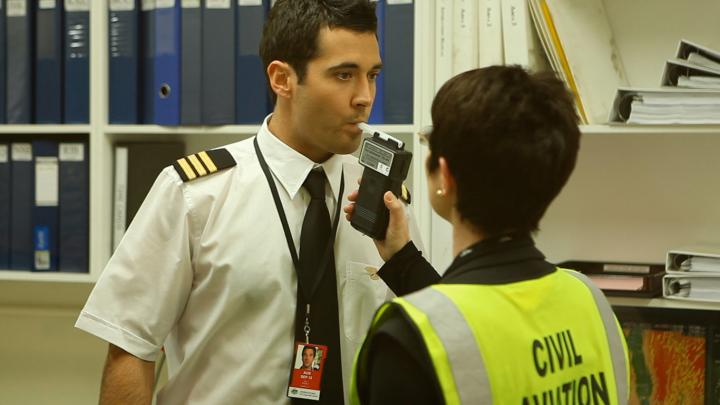The Civil Aviation Authority of Singapore (CAAS) now conducts random alcohol testing for pilots and flight crew. In 31st March 2019, CAAS has implemented the Airport Alcohol Testing Program (AATP) and Airline Alcohol Management Program (AAMP). The AATP is conducted by CAAS and Auxiliary Police Organisation operating at Seletar and Changi Airport.
Airport Alcohol Testing Program (AATP)
Under the AATP, a flight can be selected for alcohol testing. The pilots on the selected flight are tested breath alcohol in 2 stages. An initial screening test is conducted using an Alcolizer LE5 alcohol tester and is configured to give a indicate if alcohol was present without numerical reading. The legal limit is 0.02g of alcohol per 210 litres of breath which is equivalent to 0.02%BAC. For comparison, the legal limit for drink driving in Singapore is 35mg of alcohol per 100ml of breath which is approximate 0.08% or 4 times the limit imposed by the Civil Aviation Authority of Singapore on pilots.
Performing the duty of a pilot while under the influence of alcohol is an offence under their Navigation Regulations 2018 under (91 – General Operating Rules). Refusal to provide a breath alcohol sample will also be an offence.
Airline Alcohol Management Program (AAMP)
The AAMP is a multi-faceted approach to deal with manage pilots with possible alcohol problems. It is compulsory for Singapore Air Operator Certificate (AOC) holder to have an AAMP and this includes, but not limited to, Singapore Airlines, Silkair, Scoot, etc. The program to identify pilots is similar to the HIMS program in the US. HIMS is specific to commercial pilots and coordinates the identification, treatment and return to the cockpit of impaired aviators. It is an industry-wide effort in which companies, pilot unions, and FAA work together to preserve careers and further air safety. There are two parts to an AAMP-
Identification of pilots with possible problems with alcohol through peer report and allow pilots to identify themselves for rehabilitation programs. In addition, airlines have to conduct random testing for breath alcohol.
A rehabilitation program by healthcare professionals to help pilots deal with addiction and prevent a recurrence.
Source: CAAS Factsheet On Airport Alcohol Testing Programme & Airline Alcohol Management Programme
